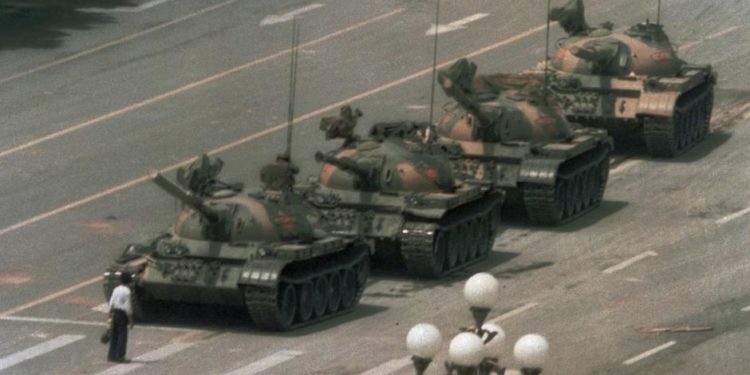On the anniversary of the bloody 4 June Tiananmen Square crackdown, the victims are commemorated by a 24 hour-fast, consuming only water and thinking of the students who perished.
In spring 1989, students and workers occupied Beijing’s Tiananmen Square in a massive pro-democracy protest. Many were killed in a brutal clampdown by the communist authorities. Till this day, peporting on the events is heavily censored in China. In the weeks leading up to 4 June, the world’s biggest censorship takes place. Any reference of the event is cleansed from the internet, and those who overcome these control mechanisms face jail time.
Today marks 30 years since the six weeks of demonstrations which ended with the Beijing massacre of 3-4 June. More than one million pro-democracy protesters occupied Tiananmen Square in April 1989 and began the largest political demonstration in communist China’s history. The protests spread to 300 cities and universities across the country. The demonstrators called for freedom, democracy and an end to dictatorship.
On the night of 3 June, tanks moved in and troops opened fire, killing and injuring many civillians in and around Tiananmen Square. Later, the authorities claimed no-one had been shot dead in the square itself. The Chinese government has never disclosed how many protesters were killed, although estimates range from the hundreds to thousands.
Today, the president Wei describes the events as necessary to “avoid political instability” and that the “past 30 years have proven that China has undergone major changes”. Wei uttered these words in the same breath that he threatened to imprison people for attempting to bring the historic events to light. On this basis, it cannot be said that the pro-democratic protests against dictatorship, have been a success, nor has China “undergone major changes”.










